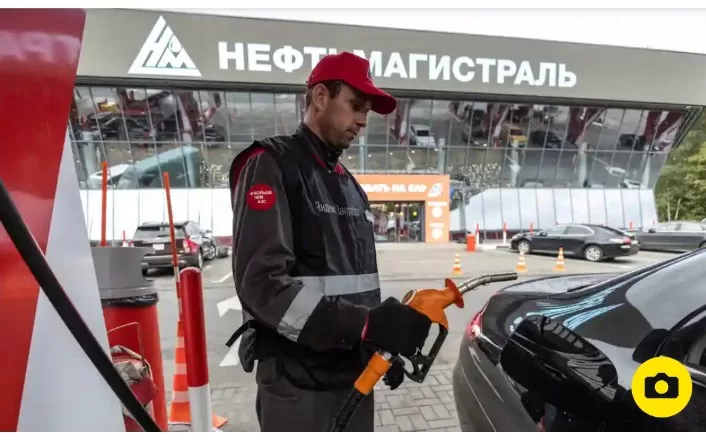MOSCOW – Russia has enacted a swift and sweeping measure by temporarily halting the export of petrol and diesel to all nations outside a select group of four former Soviet states. This decisive action aims to restore equilibrium to the domestic fuel market.
In an official statement, the Kremlin asserted that these “temporary restrictions will help saturate the fuel market, which in turn will reduce prices for consumers.” The move is driven by the need to curb unauthorized “grey” exports of motor fuels, according to the energy ministry.
The repercussions of this export ban were immediately felt as diesel prices in Europe surged by 5%, surpassing the $1,000-per-tonne mark.
In recent months, Russia has grappled with shortages of petrol and diesel, leading to significant spikes in wholesale fuel prices. To mitigate the impact on consumers, retail prices have been capped in line with official inflation figures. Concurrently, Brent crude prices are approaching a notable milestone of $100 a barrel, having risen by 1% to $94 on Thursday.
The consequences of this fuel crunch have been acutely felt in certain regions of Russia, particularly in the agricultural heartland of the south, where fuel is indispensable for the harvest. The timing of this crisis is particularly delicate for the Kremlin, as it coincides with an upcoming presidential election slated for March.
Notably, the export ban does not encompass fuel supplied under intergovernmental agreements with member countries of the Moscow-led Eurasian Economic Union. This exception extends to Belarus, Kazakhstan, Armenia, and Kyrgyzstan.
Traders have attributed the challenges in the fuel market to multiple factors, including maintenance work at oil refineries, logistical bottlenecks in railway transportation, and the vulnerability of the Russian ruble, which incentivizes fuel exports.
Russia had previously taken steps to curtail its seaborne diesel and gasoil exports, reducing them by nearly 30% to approximately 1.7 million metric tonnes during the initial 20 days of September compared to the same period in August, as confirmed by traders and London Stock Exchange data.
The Kremlin’s statement elaborated, stating, “Previously, to stabilize the situation on the fuel market, the government raised the mandatory supply volumes of motor gasoline and diesel fuel to the commodity exchange … Daily monitoring of fuel purchases for the needs of agricultural producers with prompt adjustment of volumes has also been set up.”
As Russia grapples with these measures to stabilize its domestic fuel market, the world watches closely to gauge the impact on global energy dynamics and prices.
By Reuters







